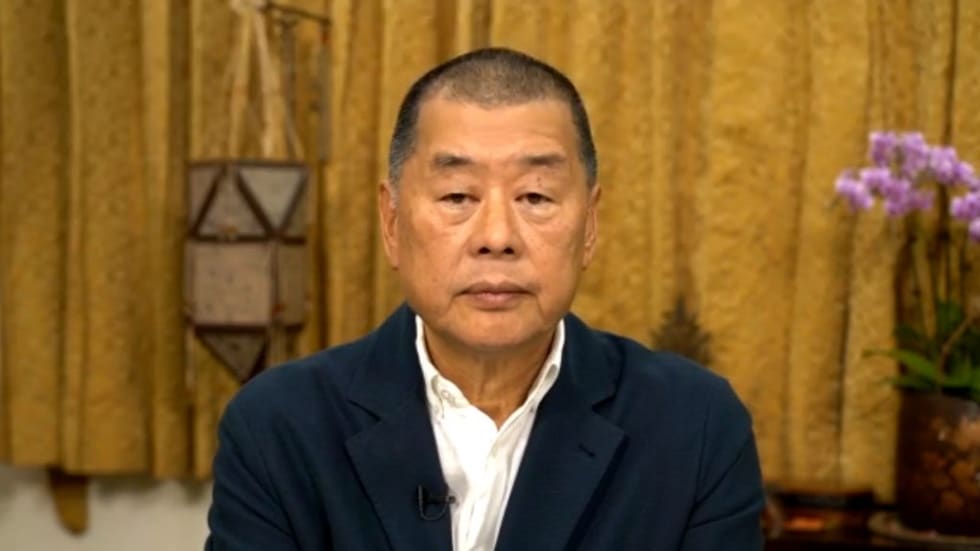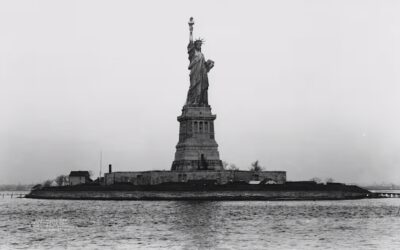Can foreign-policy noninterventionists publicly criticize foreign tyrannies without giving credence to the war party? Yes — if they try. At least I hope so. Being a noninterventionist does not require agnosticism about, much less approval of, despotic regimes.
U.S. war, of course, threatens the liberty and lives of Americans, not to mention foreigners. That’s why Randolph Bourne wrote, “War is the health of the state.” When private individuals condemn tyranny abroad and U.S. war against it, they are pursuing the same cause.
That many people who denounce tyranny in Russia, China, and elsewhere are enthusiasts for U.S.-led war (or proxy war) is no reason to assume that every American opponent of foreign tyranny also favors war. Principled noninterventionism must not appear to whitewash despicable regimes for the sake of damping war fever (or any other reason). For one thing, that would imply that war against acknowledged tyrannies would be good — which it would not. Noninterventionism stands on its own merits, whatever the nature of the state’s imagined threat du jour.
So one can oppose the U.S. war party while denouncing, among others, the regimes of Russia, China, Iran, North Korea, Cuba, and Venezuela. The oppression of their domestic populations, China’s threat to Taiwan and Hong Kong, and Russia’s war on Ukraine should not be played down because the war party also denounces them. That U.S. policymakers have made things worse through economic sanctions and other provocations — like the expansion of NATO and the instigation of coups — is no excuse for giving those atrocious regimes a pass. Bad regimes don’t become good because American politicians also do wrong.
What prompts these thoughts is a man named Jimmy Lai, who just won the Cato Institute’s Milton Friedman Prize for Advancing Liberty. Lai, a 75-year-old Hong Kong businessman-turned-pro-liberty-publisher/activist, is in prison and faces more charges, having been oppressed by the Chinese government for his pro-freedom activities. Lai is the most famous example of China’s attempt to crush the individual, but he’s far from the only one.
His story is inspiring as well as heartbreaking. (See the movie “The Hong Konger: Jimmy Lai’s Extraordinary Struggle for Freedom.”) Born poor in China in 1947, he escaped to Hong Kong before he was a teenager. He worked in a factory and eventually started his own apparel manufacturer and retail chain, Giordano, which has been a huge success.
While until 1997 Hong Kong was been a British colony without democratic institutions, it largely had a free market and other classical liberal features. Milton Friedman celebrated its essentially laissez-faire market system in his television series, Free to Choose. Because of this freedom, which included the rule of law as well as freedom of speech and press, Hong Kong it went from very poor after World War II to very rich in short order. Bear in mind that Hong Kong has no resources: even drinking water has to be imported. But it had enterprising free people, and markets, including free trade with the world.
A better demonstration of the market in action is hard to imagine. But Hong Kong’s future had a dark cloud over it: the Chinese communist government.
In 1997 the British relinquished control of Hong Kong to China under the terms of the 99-year lease Great Britain and China had signed. As part of the turnover, the Chinese communist government agreed to respect Hong Kong’s autonomy for 50 years, but many doubted that the Chinese government would leave Hong Kong alone before or after 2047. It didn’t keep hands off for long.
That government offered an ominous preview of the future on mainland China eight years before the British turned over Hong Kong: the horrific violence against pro-democracy demonstrators in Beijing’s Tiananmen Square in 1989. This was a decade after had China significantly liberalized economic, but not political, activity. One-party rule prevailed, and dissent was not tolerated.
As a result of the violence, according to the Cato announcement, “Lai founded Next Media (which became Next Digital in 2015) and launched Next magazine. Next became the top news magazine in Hong Kong for over 30 years.” Among other claims to fame, “it was also known for its strong advocacy of free markets, lower regulation, and economic choice in all matters.”
Lai’s promotion of freedom, which he says was inspired by F. A. Hayek’s The Road to Serfdom, started to get him in trouble. “Following a column in the magazine in 1994, in which Lai told then Chinese Prime Minister Li Peng to ‘drop dead,’ China began to force the closures of branches of Giordano on the mainland. Lai sold his share of that company and in 1995 launched Apple Daily, which was a combination of tabloid journalism, democracy advocacy, and a loud and clear free-market message.”
That newspaper became a much-read paper, which the Chinese government would eventually shut down as it tightened the screws on Lai.
In 2014 Lai’s participation in pro-democracy demonstrations got him arrested. He further irritated China’s rulers five years later when on a visit to the United States he met with high-profile government officials. Perhaps he should have skipped that part of the trip. Past U.S. government meddling in many countries has made it too easy for repressive governments to smear dissidents as foreign agents.
Cato continues:
His clashes with authorities intensified sharply in 2019, especially after the July 2020 enactment of a sweeping Chinese national security law that is now expanding mainland China’s suppression of the Hong Kong people.
Lai was arrested on February 28, 2020, and again on April 18 for alleged participation in unlawful demonstrations the previous year. Police arrested him again on August 10, 2020, for alleged collusion with foreign powers. He was arrested again and denied bail on December 3 after being charged with fraud. He was formally charged under China’s national security law on December 11.
Libertarians know how so-called national security laws can empower any government to get away with all manner of repression.
Lai was granted bail on highly restrictive terms on December 23, only to have bail revoked on December 31. Subsequent applications for bail under the national security law were denied on the grounds that he might commit further offenses. Lai was arrested again on February 17, 2021, while already in prison for allegedly helping 12 fugitives in their failed attempt to escape Hong Kong for Taiwan.
The Chinese government threw nearly everything it had at him, but all reports say that it has not broken his spirit.
On April 16, 2021, Lai was sentenced to 14 months in prison for the alleged organization of, and participation in, two unauthorized marches in 2019. In December 2022, Lai was sentenced to five years in prison for a lease violation that was then elevated to a fraud charge and subsequently investigated by China’s national security police, prosecuted by a national security prosecutor, and tried by a national security judge. A conviction in the ongoing national security case, scheduled for trial in September 2023, could result in a sentence of life in prison. [Emphasis added.]
Lai could have left Hong Kong when his troubles began, as some of his associates had done. He chose to stay and fight for the freedom of Hong Kong. That takes courage few people have.








